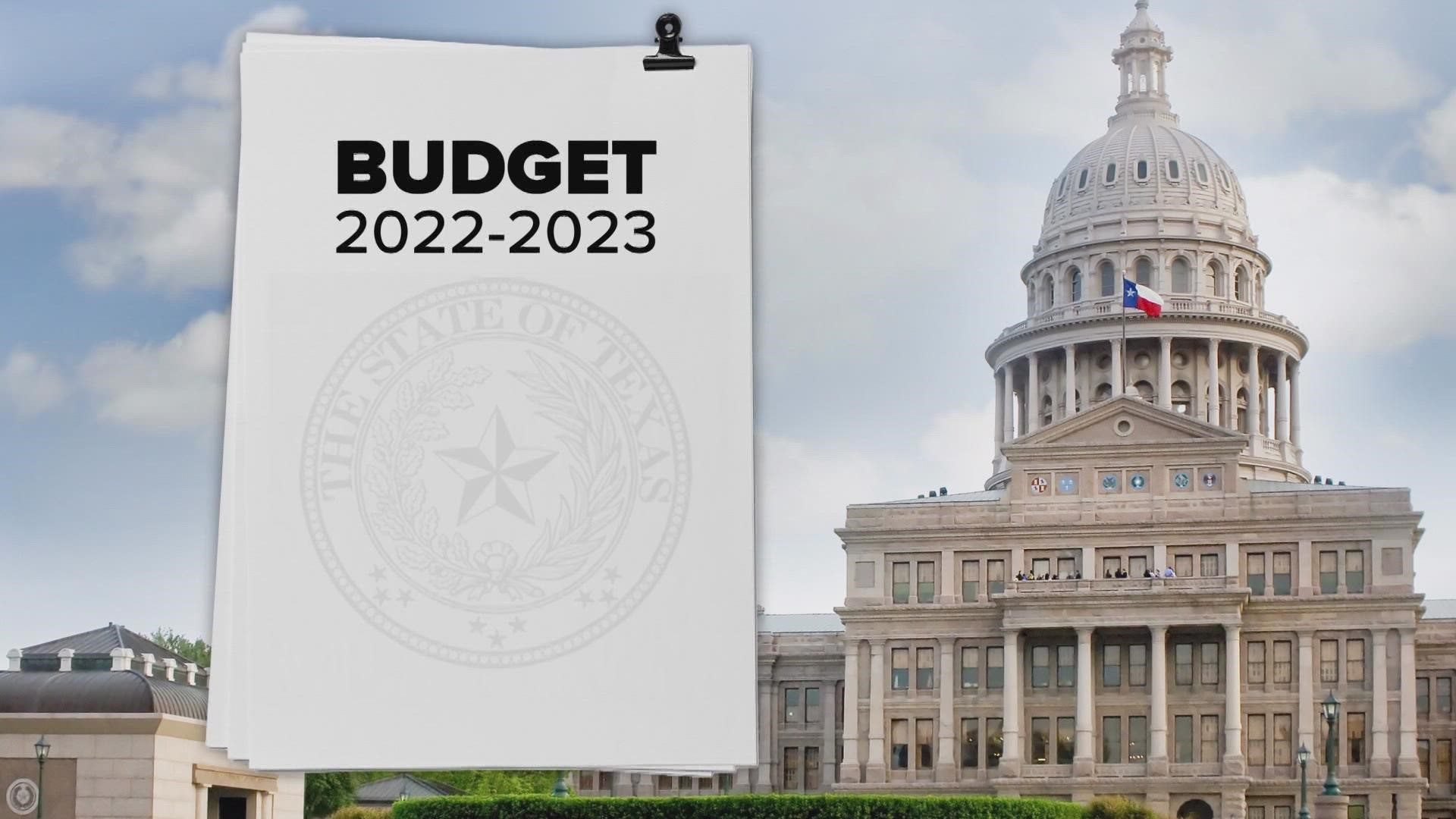TEXAS, USA — Inflation brings a lot of words to mind, including windfall. While our wallets have been deflating because of higher prices for oil, gas, cars, electricity, clothing, event tickets, and a lot of other things, some businesses have benefited. And so has the state of Texas.
A few examples: The state collects taxes for oil and natural gas production. The tax amount depends on market prices, which have far exceeded the amount state leaders had expected when they drew up the current budget. The same thing applies to automobiles. Prices have shot up for vehicle purchases and for rentals, increasing tax revenues in that category, too.
The real windfall could come from higher than expected sales taxes. With inflation rising just about every time you have checked out in recent months, you have been paying a lot more for goods and services. Sales taxes are based on how much you spend on taxable items, so those higher costs are leading to higher tax collections as well.
Those are just some of the state’s revenues, but let’s add them up. Texas operates its budget in two-year cycles. At the end of August, we will be done with the first of the two years in this current budget. When they developed their current spending and revenue blueprint several years ago, state leaders had no idea how much prices for everything would soar.
If, and this is a big IF, we were to continue to see current-day inflated prices (and therefore, inflated tax collections) for the rest of this two-year budget cycle, the state is on pace to take in an extra $2,580,745,000 in oil production taxes, an extra $3,470,652,000 in natural gas production taxes, an additional $647,045,400 in vehicle sales and rental taxes, and a whopping $6,303,705,000 more than budgeted in sales taxes.
Combined, that would be a $13,002,147,000 surplus just from those taxes. There are a lot more revenue sources for the state, so a surplus is expected to be far larger than that. Of course, again, that is assuming that inflation remains at the current unusually high levels.
Originally, the word windfall described falling branches that gave people easy access to fruit. You always hear how money doesn’t grow on trees. For this state, in this time of extraordinary inflation, it looks like it does.
The question is, how will it be spent? Will Texas save most of it like the state has done in the past? Will Texas do like California and send checks back to millions of residents? Many other states flush with cash in recent years have also given money back to the people in the forms of tax rebates or credits.
One prominent Texas taxing and spending watchdog group says if tax receipts are extraordinarily high, the state has a real opportunity here to buy down property taxes, since homeowners here pay among the highest tax bills in the country.
We've already heard rumblings that may happen. But political observers say lots of extra money will likely mean lots of promises from elected leaders heading into the November election. Shortly after that, lawmakers will start meeting in January of 2023, and we’ll see where all that money ends up.

